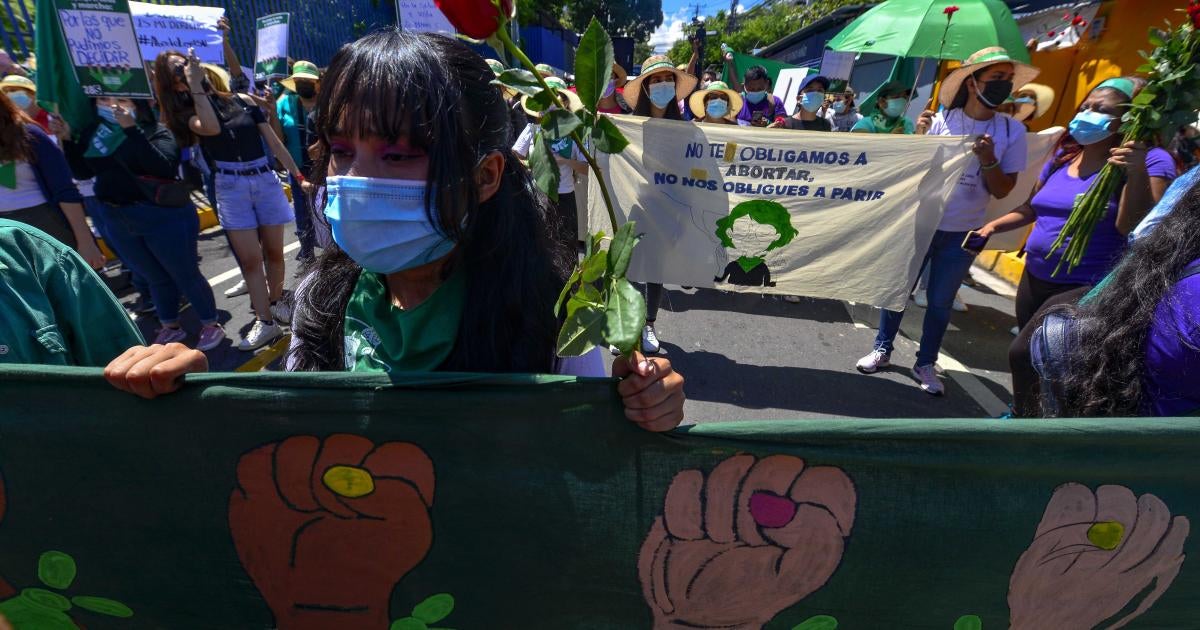(Washington, DC) – An Inter-American Court of Human Rights hearing on the case of Beatriz, who was denied an abortion by El Salvador despite her high-risk pregnancy, will highlight the dire consequences of a law that completely bans abortion and is an opportunity for a step forward in the protection of reproductive rights in the region, Human Rights Watch said today.
“This is the first time the Inter-American Court will discuss the consequences of the total criminalization of abortion,” said Cristina Quijano Carrasco, women’s rights researcher at Human Rights Watch. “Its ruling on El Salvador, which has some of the world’s strictest anti-abortion laws, would set a precedent in Latin America and the Caribbean when it comes to abortion if a women’s life is in danger or if a fetus cannot survive outside the womb.”
In February 2013, Beatriz’s life was put in danger as a result of her pregnancy. Beatriz was diagnosed with a high-risk pregnancy at 11 weeks, when an ultrasound showed the fetus to be anencephalic, a congenital malformation with no prognosis for survival outside the womb. If a woman with an anencephalic pregnancy is forced to carry the fetus to term, it can lead to multiple complications, including obstetrical hemorrhage.
The Medical Committee of El Salvador’s national maternity hospital recommended terminating the pregnancy. But in El Salvador, abortion is illegal in all circumstances, even when the pregnant woman’s life, health, and personal integrity are at risk, or the fetus has serious complications incompatible with life outside of the womb.
Through a lengthy process, Beatriz requested the termination of her pregnancy and took her case to the Supreme Court, which ultimately ruled she could not have an abortion. On April 29, 2013, the Inter-American Commission of Human Rights (IACHR) noted that Beatriz had a high-risk pregnancy and called on El Salvador to carry out the “necessary measures to implement the treatment” recommended by the Medical Committee.
However, El Salvador failed to comply, prompting the Inter-American Court to adopt provisionary measures and on June 3, Beatriz underwent an emergency C-section. The anencephalic fetus died five hours later.
In January 2022, the Inter-American Commission of Human Rights sent the case to the Inter-American Court of Human Rights, alleging that El Salvador violated Beatriz’s rights to life and health, to be free from inhumane treatment, and to privacy, equality before the law, and judicial guarantees and protection, under the American Convention on Human Rights. The Inter-American Commission also reiterated that the absolute criminalization of abortion exposes women to dangerous and even lethal practices that put their health and lives at risk, noting that women who are poor and most vulnerable are disproportionately affected.
Despite the Inter-American Commission’s recommendations, El Salvador continues to criminalize abortion in all circumstances. Women have been convicted of homicide for having an abortion, sometimes with sentences of up to 40 years in prison. In some cases, having a miscarriage or stillbirth was used as evidence to convict them. The Inter-American Court has already ruled that El Salvador was responsible for the death of Manuela, who was sentenced to 30 years in prison in 2008 for aggravated homicide after suffering an obstetric emergency that resulted in her losing her pregnancy.
Access to safe and legal abortion protects autonomy and reduces maternal mortality and morbidity. Authoritative interpretations of international human rights law establish that denying women, girls, and other pregnant people access to abortion is a form of discrimination and jeopardizes a range of human rights. These include the rights to life and to be free from torture and other cruel, inhuman and degrading treatment; liberty; health and information; privacy and bodily autonomy and integrity; deciding the number and spacing of children; enjoying the benefits of scientific progress; and freedom of conscience and religion.
United Nations human rights treaty bodies regularly call for governments to decriminalize abortion in all cases and, at minimum, to ensure access to safe, legal abortion in certain circumstances.
Latin American countries such as Uruguay, Argentina, and Colombia, and some states in Mexico, currently recognize access to abortion services as a human right, and some have legalized the procedure in the last three years. Meanwhile, other countries, such as Chile and Ecuador, have taken steps forward in decriminalizing abortion in cases such as rape, fetal unviability, and when the life of the pregnant woman is at risk.
“El Salvador needs to fulfill its obligations to respect and protect human rights, including reproductive rights,” Quijano Carrasco said. “El Salvador should decriminalize abortion and ensure women and pregnant people’s access to safe and legal abortion.”

